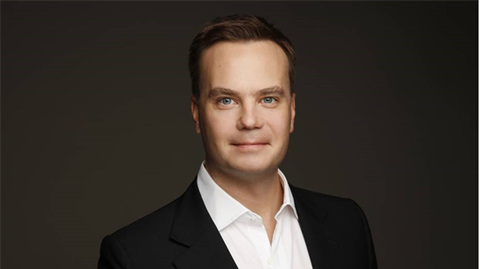Arvi Luoma, co-founder of Blackbrook, a new pan-European fund focusing on ‘mission-critical’ real estate assets, has described the acquisitions environment as ‘challenging’, despite the firm breaking through with its debut logistics property deal last month.

‘We’re focusing on assets which are in high demand, particularly in the logistics and industrial space,’ he noted. ‘There’s a lot of money chasing very straightforward, long-income opportunities, and there’s not much core plus or core plus-plus available. But we’ve been reviewing a lot of deals over the summer, and have a couple of projects in our pipeline which we hope to be closing in the next couple of months.’
Blackbrook, which was launched in March by Luoma alongside another property veteran, Gordon DuGan, has readied €1 bn of capital to amass a pan-European portfolio dominated by at least 70% logistics and industrial assets. Bankrolled by Connecticut-based Eldridge, the vehicle is also considering speciality retail, strategic office and even hospitality as part of its wider strategy.
However, it’s the strategic logistics properties which really seem to be capturing the mood of the moment, Luoma told PropertyEU. ‘Last mile is still a new asset class,’ he underlined. ‘The rents are very high in terms of logistics… in the UK, we’re looking at up to £20 (€22) rents instead of the £6 or £7 you’d expect for traditional warehousing. But last mile is distinguished by the inherent value of the location and the land, which is why rents aren’t that dissimilar to a retail box.’
The firm’s first deal, unveiled in September, comprises a modern, last mile facility located in the Capital Region of Denmark near Copenhagen which is majority leased to a major Danish logistics company, Danske Fragtmænd, on a long-term, net basis.
'The transaction demonstrated that we can move quickly and opportunistically in the current challenging market environment,’ Luoma stressed. However, the firm is taking a very careful approach to risk.
‘We are looking at other asset types as well, such as defensive retail, like DIY or grocery stores, but they have to be e-commerce proof – it’s one of the biggest threats we underwrite,’ he said. ‘Sale-and-leaseback is a core vertical of ours, but I have heard a lot of companies say they will wait out 2020, and start to look again at these kinds of mechanisms in the new year. For us to be interested they would also need to be a creditworthy company, so it’s a balancing act.’
Blackbrook’s original investment thesis includes hospitality, but buying hotels is currently on ice. ‘Hospitality is one of the sectors most impacted by the crisis,’ Luoma said. ‘It’s a little too early to be buying in that space. There are still so many unknowns in terms of travel and quarantine requirements; only non-discretionary travel has survived. It’s impossible to project hotel performance, so I can’t see a way to underwrite a hotel as a real estate investment – and banks are not actively lending on hotels.’
That leaves the firm focusing primarily on logistics, with a particular interest in modern, urban schemes, particularly those helping fulfil e-commerce deliveries in the current environment. Looking at how the sector may shape up further, Luoma added: ‘I do believe we’ll see a lot of tenants taking on these kinds of projects themselves going forward – the likes of Amazon – so it just remains to be seen how compliant planning authorities will be in the ultra-urban locations, which will increasingly be in demand.’










